|
I pity a community that speaks about the tone and not about the contents and spirit of a matter.
The brotherly tone may not conceal any truths which justice demands to speak.
Some people are only frightened when the polemic tone becomes sharp.
I am frightened when the matter is confused even when the tone is very mild.
—Klaas Schilder (Translated by Roelof A. Janssen)
* * *
Ik beklaag een gemeenschap, die over de ,,toon" spreekt, en niet over de ,,inhoud" en over de ,,geest".
De broederlijke toon moet geen waarheden verzwijgen, die de rechtvaardigheid gebied te spreken.
Sommige mensen worden pas huiverig, als de polemise toon scherp wordt.
Ik word het als de zaak vertroebeld wordt, ook al is de toon aeolisch.
—Klaas Schilder
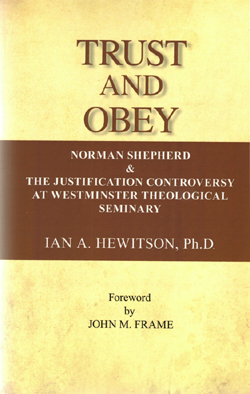
Trust and Obey
Norman Shepherd and the Justification Controversy at Westminster Seminary
by Ian Hewitson
There are those in the Church today who are fearful about anyone who raises a question concerning the ambiguities associated with the formula "justification by faith alone." The exclusive particle sola introduced by Luther has undoubtedly performed a valuable service in signalizing the distinction between the Protestant and Roman Catholic doctrines of justification and in preventing the intrusion of merit on the part of man as a criterion of acceptability before God. The long and cherished tradition that lies behind "justification by faith alone" as a theological formula would make it appear to be an act of ingratitude, if not impiety, to raise the question of its adequacy as a summary of the thrust of the biblical doctrine of justification. Even so, it was the Reverend Professor Norman Shepherd's examination of the Scripture alone that gave him the courage to raise precisely this question.
After all, there is the fact that neither the Apostle Paul nor any other biblical author uses the expression "justification by faith alone". It is true, of course, that Paul does use the expression "justification without the works of the law," and it is in these words that the theological warrant is traditionally found for defending the formula "justification by faith alone." It is true that the theology and the confessions of the church are not bound to the precise wording of Scripture, and the formula "justification by faith alone" appears to be a reasonable rendering of the sense of "justification without the works of the law". Traditionally, the matter has rested at this point with this explanation and it could remain here were it not for the fact that the text of the Bible expressly rejects justification by faith alone. James writes (2:24), "You see that a man is justified by works and not by faith alone." It was to Scripture-not tradition, and to James 2:24 that Professor Shepherd turned his attention. The consequence of his enquiry into the book of James and the sufficiency of the formula "justification by faith alone," was a controversy that shook Westminster Theological Seminary; the tremors of which are felt even today.
ENDORSEMENTS:
[U]nless the documents cited in this study can be challenged as inaccurate, I believe this conclusion to be inescapable.
G. I. Williamson,
Author, and retired Pastor of the Orthodox Presbyterian Church
Here finally is a scholarly and objective treatment of the controversial events and issues leading to Professor Norman Shepherd's dismissal from Westminster Theological Seminary in 1982. Full of stunning revelations this is an indispensable resource for being informed about the "Shepherd Controversy" as well as for properly understanding the continuing debate surrounding his views on justification and related doctrines. Highly recommended!
- Cornelis Van Dam,
Professor of Old Testament, Canadian Reformed Theological Seminary
As one who lived through the "Shepherd Controversy," first as a student and then as a young faculty member, I read Ian Hewitson's account and analysis with great interest. His vivid and accurate narrative of the events brought back to my memory the difficult debates of three decades ago. His analysis of the dispute is sharp and to the point. " I enthusiastically recommend this book not only to the Reformed community at the heart of the controversy, but to all serious theological thinkers.
- Tremper Longman III,
Professor of Old Testament, Westminster Theological Seminary (1980-1998), Robert H. Gundry Professor of Biblical Studies, Westmont College (1998-present)
Polemics can often be very harmful to the truth, and theological polemics are usually among the most harmful. From this point forward, only the person who has read Ian Hewitson's study deserves to speak and be heard regarding the subject and controversy in view. The Ninth Commandment requires nothing less. Thank you, Ian, for this compelling study!
Nelson D. Kloosterman, Th.D.
Ethics Consultant and Executive Director, Worldview Resources International
| 

 En Route
En Route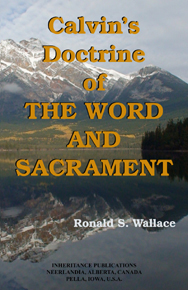
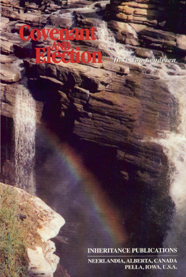 Covenant and Election by Dr. J. Van Genderen
Covenant and Election by Dr. J. Van Genderen 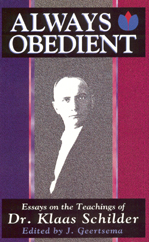 Always Obedient Essays on the Teachings of
Always Obedient Essays on the Teachings of 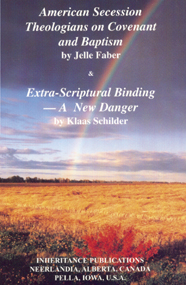 American Secession Theologians on Covenant and Baptism by Jelle Faber & Extra-Scriptural Binding A New Danger by Klaas Schilder
American Secession Theologians on Covenant and Baptism by Jelle Faber & Extra-Scriptural Binding A New Danger by Klaas Schilder 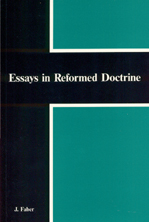 Essays in Reformed Doctrine by J. Faber
Essays in Reformed Doctrine by J. Faber 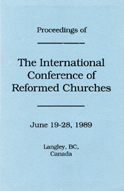 Proceedings of The International Conference of Reformed Churches June 19-28, 1989 Langley, B.C. Canada
Proceedings of The International Conference of Reformed Churches June 19-28, 1989 Langley, B.C. Canada 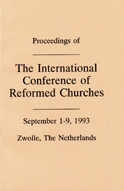 Proceedings of The International Conference of Reformed Churches September 1-9, 1993 Zwolle, The Netherlands
Proceedings of The International Conference of Reformed Churches September 1-9, 1993 Zwolle, The Netherlands 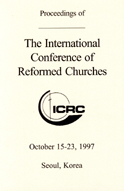 Proceedings of The International Conference of Reformed Churches October 15-23, 1997 Seoul, Korea
Proceedings of The International Conference of Reformed Churches October 15-23, 1997 Seoul, Korea 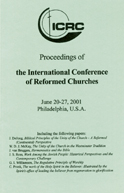 Proceedings of the International Conference of Reformed Churches June 20-27, 2001, Philadelphia, U.S.A.
Proceedings of the International Conference of Reformed Churches June 20-27, 2001, Philadelphia, U.S.A. 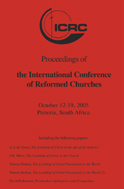 Proceedings of the International Conference of Reformed Churches October 12-19, 2005, Pretoria, South Africa
Proceedings of the International Conference of Reformed Churches October 12-19, 2005, Pretoria, South Africa 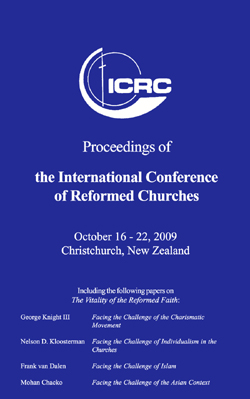 Proceedings of the International Council of Reformed Churches, 2009 - New Zealand
Proceedings of the International Council of Reformed Churches, 2009 - New Zealand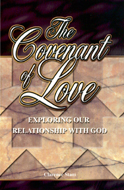 The Covenant of Love by Clarence Stam
The Covenant of Love by Clarence Stam 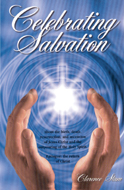 Celebrating Salvation by Clarence Stam
Celebrating Salvation by Clarence Stam 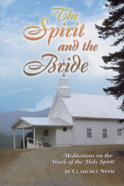 The Spirit and the Bride by Clarence Stam
The Spirit and the Bride by Clarence Stam 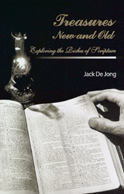 Treasures New and Old by Jack De Jong
Treasures New and Old by Jack De Jong 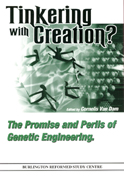 Tinkering with Creation?
Tinkering with Creation? 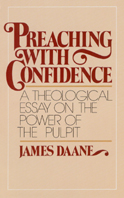 Preaching With Confidence by James Daane
Preaching With Confidence by James Daane 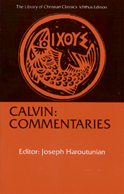 Calvin: Commentaries
Calvin: Commentaries 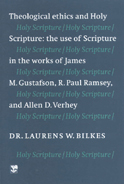 Theological Ethics and Holy Scripture
Theological Ethics and Holy Scripture 
